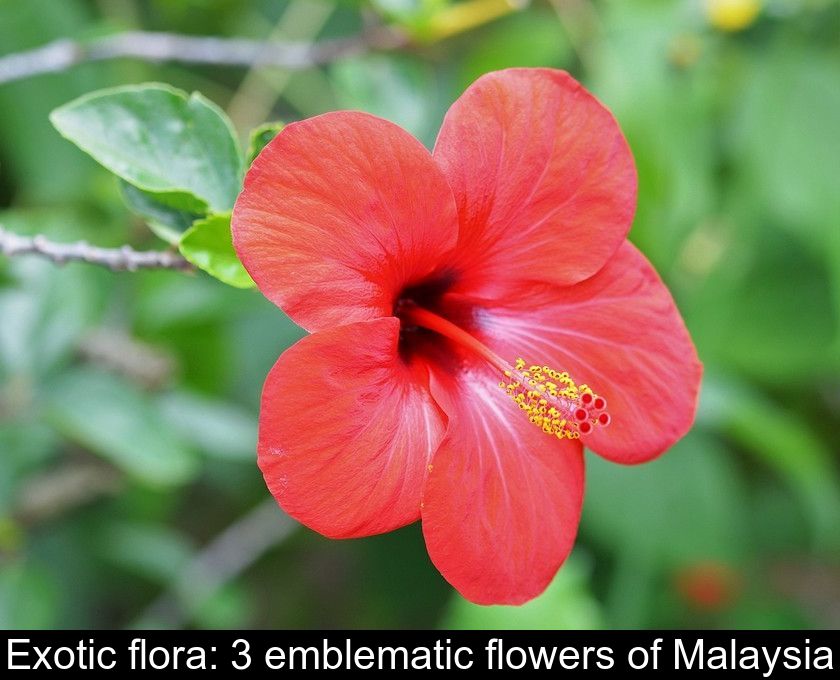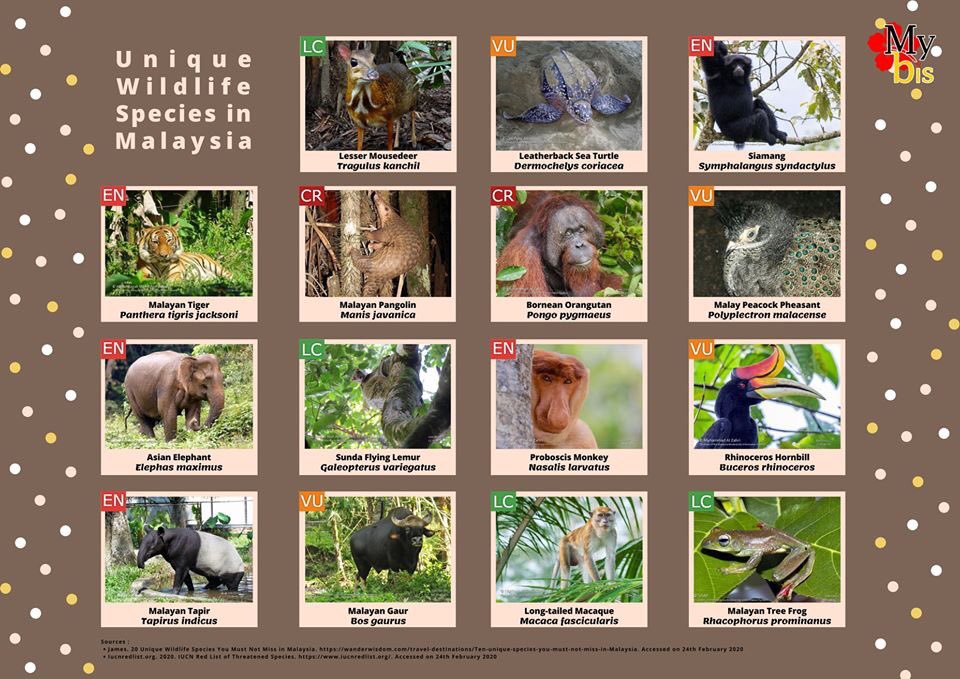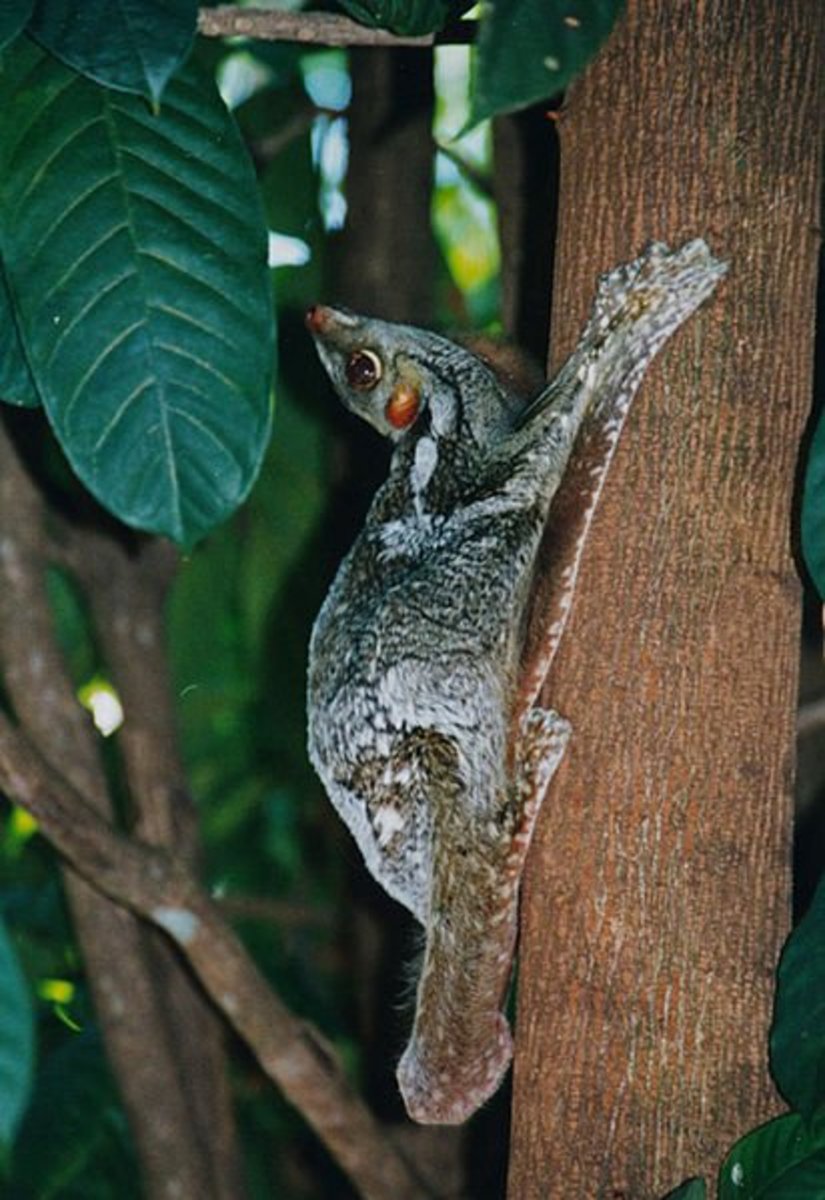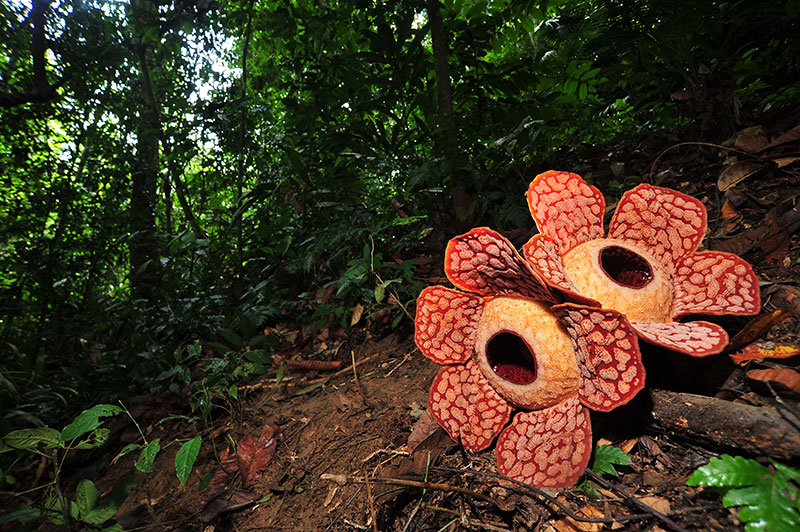Malaysia’s Unique Flora and Fauna

Overview of Malaysia‘s Unique Flora and Fauna
Introduction to Malaysia’s Biodiversity
Malaysia stands as a beacon of biodiversity, boasting a unique array of flora and fauna that thrives in its tropical climate. With over 15,000 plant species and countless animal species, including more than 600 types of birds, Malaysia’s rich ecosystems are vital not only to its national identity but also to global biodiversity.
Importance of Preserving Malaysia’s Ecosystem
Preserving Malaysia’s ecosystem is crucial for several reasons:
- Cultural Heritage : The vast array of species supports local traditions and lifestyles.
- Economic Stability : Biodiversity contributes to sectors like agriculture, pharmaceuticals, and tourism.
- Environmental Health : Healthy ecosystems regulate climate, air, and water quality.
To illustrate, personal experiences in Malaysian rainforests showcase how crucial these environments are. Encountering a blooming Rafflesia, the world’s largest flower, or hearing the distinct calls of endangered hornbills emphasizes the urgent need for conservation efforts. Thus, maintaining biodiversity in Malaysia ensures a sustainable future for both nature and humanity.

Distinctive Flora of Malaysia
Tropical Rainforests and Their Diversity
As we delve deeper into Malaysia’s stunning landscapes, the tropical rainforests emerge as a captivating highlight. These lush forests, home to a staggering range of biodiversity, cover about 60% of the country. Walking through these verdant canopies, one might encounter towering trees, vibrant flowers, and an assortment of ferns, creating a vibrant ecosystem rich with life.
Iconic Plant Species in Malaysia
Within these rainforests are iconic species that have garnered international attention. Notable among them are:
- Rafflesia arnoldii : Famous for being the largest flower globally, it emits a particular odor that attracts pollinators.
- Dipterocarps : A family of trees critical to Malaysia’s timber industry and renowned for their height and ecological importance.
- Orchids : With over 2,000 species, Malaysia’s orchids dazzle visitors with their colors and shapes, symbolizing the nation’s floral diversity.
On a recent hike, witnessing the enormous blooms of the Rafflesia left a lasting impression and underscored the incredible plant life that thrives in this unique environment. Malaysia’s flora is not just a feast for the eyes; it represents vital ecosystems that require protection.

Diverse Fauna of Malaysia
Endangered and Threatened Species
Transitioning from the vibrant plant life, Malaysia is equally home to an astonishing variety of wildlife, though many species are facing dire threats. Among the most critically endangered are:
- Malayan Tiger : With fewer than 250 left in the wild, this elusive predator embodies Malaysia’s wilderness.
- Bornean Orangutan : Only found in this region, the orangutan faces habitat loss due to deforestation.
- Sumatran Rhino : The world’s smallest rhinoceros, it teeters on the brink of extinction.
Experiencing the captivating calls of the orangutan while trekking through the forests truly brings to light the urgent need for conservation.
Unique Animal Adaptations in Malaysia
The wildlife here exhibits remarkable adaptations that enable survival in diverse habitats:
- Flying Lemurs: These gliding mammals navigate through the treetops, evading predators and utilizing their gliding capability to enhance foraging efficiency.
- Proboscis Monkeys: With their unique noses, these monkeys not only attract mates but also assist in dissipating heat, crucial for their tropical habitat.
Observing these adaptations in action reinforces the importance of protecting Malaysia’s intricate ecosystems, serving as a reminder that each species plays a vital role in maintaining ecological balance.

Conservation Efforts in Malaysia
National Parks and Wildlife Reserves
Building on the remarkable biodiversity we’ve explored, Malaysia’s commitment to conservation is evident in its extensive network of national parks and wildlife reserves. Spanning over 13 national parks, these protected areas serve as sanctuaries for countless species. Examples include:
- Taman Negara : The oldest national park, hosting diverse wildlife and ancient rainforests.
- Gunung Mulu National Park : Famous for its limestone karst formations and rich biodiversity.
During a visit to Taman Negara, witnessing a family’s joyful encounter with a wild elephant underlined the importance of these protected areas.
Government Initiatives for Biodiversity Conservation
The Malaysian government also plays a pivotal role in fostering biodiversity conservation through various initiatives:
- National Biodiversity Policy : A framework aimed at protecting ecosystems while promoting sustainable resource use.
- Wildlife Protection Act : Legislation in place to prevent poaching and illegal wildlife trade.
Through community outreach programs, individuals are encouraged to participate in protecting their local environments. These efforts not only safeguard wildlife but also promote awareness of Malaysia’s unique ecosystems, ensuring a future where both nature and people thrive.

Ecotourism and Wildlife Watching in Malaysia
Popular Ecotourism Destinations
Continuing our journey through Malaysia’s rich natural heritage, ecotourism shines as a sustainable way to appreciate its beauty. Some popular ecotourism destinations include:
- Borneo Rainforest : A treasure trove for wildlife enthusiasts, known for endemic species like pygmy elephants.
- Kinabatangan River : Offers river cruises where visitors can spot orangutans and proboscis monkeys.
During a recent visit to the Kinabatangan River, the thrill of spotting a wild orangutan swinging through the trees was unforgettable, showcasing nature’s wonders in their habitat.
Responsible Tourism Practices in Malaysia’s Natural Habitats
As ecotourism grows, responsible practices are crucial to minimize impact. Key practices include:
- Staying on designated trails : Protects fragile ecosystems while allowing for wildlife spotting.
- Supporting local communities : Engaging in eco-friendly tours benefits local economies and fosters conservation awareness.
Traveler responsibility plays a significant role in preserving these magnificent landscapes. By practicing mindful tourism, visitors can enjoy Malaysia’s natural riches while helping ensure they endure for generations to come.

Challenges Facing Malaysia’s Flora and Fauna
Deforestation and Habitat Loss
As we admire Malaysia’s diverse ecosystems, it’s essential to acknowledge the significant challenges they face. Deforestation and habitat loss are alarming issues, primarily driven by:
- Commercial Logging : Unsustainable practices deplete forests, threatening wildlife habitats.
- Agricultural Expansion : The push for palm oil and other crops results in extensive land clearing.
During a hike through a once-diverse forest, the stark contrast of barren land serves as a painful reminder of what has been lost.
Illegal Wildlife Trade and Poaching
In addition to habitat loss, the illegal wildlife trade and poaching pose severe threats to Malaysia’s unique fauna. Key concerns include:
- Endangered Species : Animals like the Malayan tiger and Sumatran rhinoceros are targeted for their pelts and horns.
- Demand for Exotic Pets : Many native species are captured and sold illegally, disrupting ecological balances.
Witnessing a documentary revealing the plight of these majestic creatures opened my eyes to the dire consequences of these actions. Combating these challenges is vital for the survival of Malaysia’s biodiversity, emphasizing the need for collective efforts in conservation and enforcement measures.

Future Outlook for Malaysia’s Biodiversity
Sustainable Development Practices
Looking ahead, the future of Malaysia’s biodiversity hinges on adopting sustainable development practices. Integrating conservation with economic growth can pave the way for a harmonious coexistence. Key strategies include:
- Eco-friendly agriculture : Using sustainable farming methods that protect habitats.
- Responsible forestry : Engaging in selective logging and reforestation efforts.
During my visit to an eco-farm, I was inspired by how local farmers harmonized agricultural practices with nature, showcasing a viable path forward.
Role of Education and Awareness in Conservation
Education and awareness play a crucial role in fostering a culture of conservation. Initiatives could include:
- Community workshops : Teaching locals about the importance of biodiversity.
- School programs : Engaging children in conservation activities to instill values from a young age.
Attending a local school’s conservation day, where students engaged in tree planting and learned about endangered species, illustrated the profound impact of education. Together, these efforts can nurture a future generation dedicated to preserving Malaysia’s invaluable natural heritage.

Conclusion and Call to Action
Summary of Malaysia’s Unique Biodiversity
In summary, Malaysia’s unique biodiversity is a treasure trove of natural wonders, from its lush rainforests to its vibrant animal species. However, the challenges of deforestation, illegal wildlife trade, and habitat loss pose significant threats. Understanding and appreciating this richness is essential for inspiring action toward its preservation.
Ways Individuals Can Contribute to Conservation
Individuals can play a vital role in the conservation journey through simple yet impactful actions:
- Support eco-friendly businesses : Choose products that prioritize sustainability.
- Volunteer for local conservation projects : Contribute time and skills to protect natural habitats.
- Spread awareness : Share insights about Malaysia’s biodiversity on social media or in your community.
During a recent cleanup event at a local beach, I felt empowered by our collective efforts to protect our environment. Together, through intentional choices and community involvement, we can ensure Malaysia’s natural heritage thrives for generations to come.




